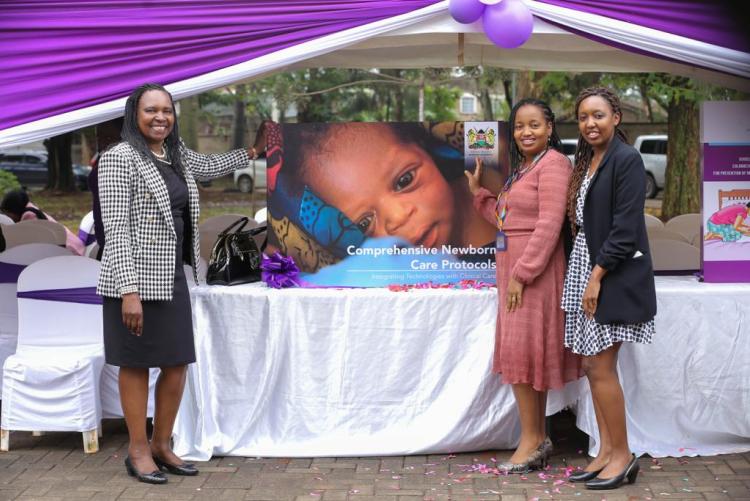All countries have committed to reducing neonatal mortality to at least as low as 12 deaths per 1000 live births by 2030. this sustainable development goal requires countries to transform the provision of newborn care, especially to the most vulnerable small and sick newborns.
In Kenya, a comprehensive approach is needed to improve newborns' survival by reducing the current neonatal mortality rate of 21 per 1000 by half by 2030 while ensuring they thrive. This approach focuses on adopting public health approaches in the health system, improving pregnancy, birth, and essential newborn care, and creating comprehensive care units that integrate best practices and use of rugged, robust technologies.
The Comprehensive Newborn Care Protocol targets all secondary-level newborn units. It will facilitate and support the provision of thermal care, comfort, and pain management; kangaroo mother care; assisted feeding for optimal nutrition(cup feeding and nasogastric feeding); safe administration of oxygen; prevention of apnea; detection and management of neonatal infections; detection and management of neonatal hypoglycemia, jaundice, anemia, and neonatal encephalopathy; seizure management, and safe administration of intravenous fluids. These guidelines include continuous positive airway pressure (CPAP) in intensive transition care. This document will provide the much-needed step-wise approach to providing evidence-based routine newborn care and managing complications while integrating essential technologies.
The Comprehensive Newborn Care Protocols were launched during World Prematurity Day at Pumwani Hospital in November by Dr. Susan Nakhumicha, the Cabinet Secretary for Health, with Professor Grace Irimu, who led the group that developed and trained the Newborn ETAT+ for dissemination.
- Log in to post comments

